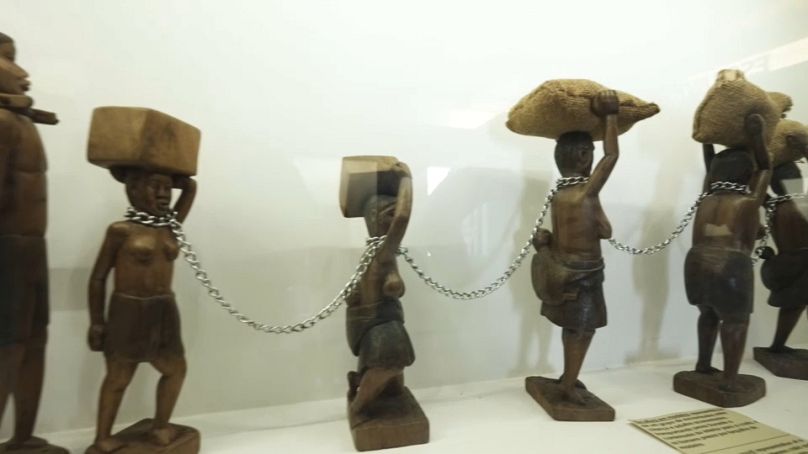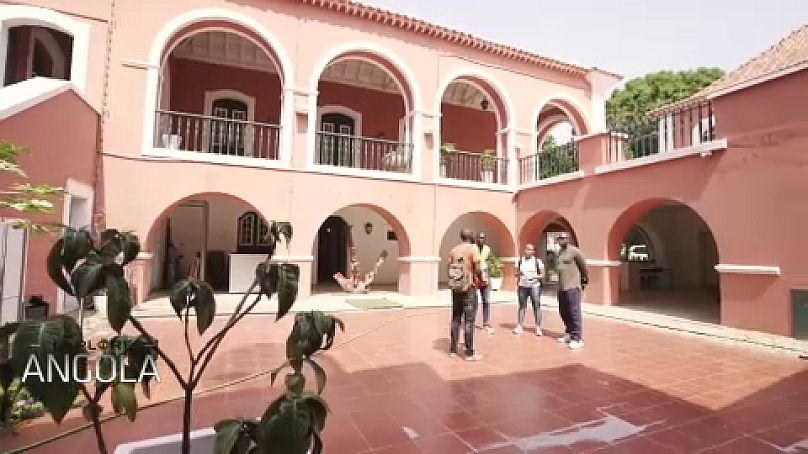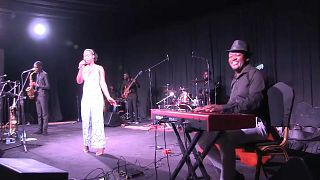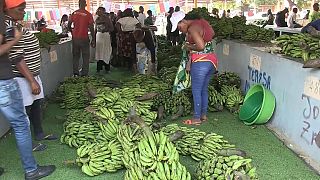Angola
Before the arrival of the Portuguese in 1575, Luanda was a trading outpost for the great Kongo and Ndongo Kingdoms. Five centuries later, the city of Luanda is rediscovering, confronting and embracing its past and hoping to establish itself as one of the most historic cities on the African continent – especially for those among the global Angolan Diaspora.
At one of Luanda’s many cultural spaces, it's a homecoming of sorts. American drummer Gregory Hutchinson has played with the likes of Betty Carter, Wynton Marsalis, Joe Henderson and John Scofield.
Hutchinson proudly got up on stage and performs a concert in the land of his ancestors. Over centuries, millions of nowadays Angolans were sent as slaves to the Americas.
“For me,” Hutchinson says, “it's been awesome to come here and to be enlightened. Walking around and seeing the different sights, coming here to see them. It wakes you up and makes you see that there's so much more to learn.”
Along his visit was the National Museum of Slavery, which exhibits artefacts evoking the horrors of a slave trade that victimised so many beyond imagination. For instance, chains and other devices were used to restrain the slaves as they were led to the ships.
“This is the beginning of a journey for me. [I feel like] I've been slapped in the face and now I'm going to do the work [to learn more].”
Guiding him to Hutchinson’s reconnection with that history is Carlos Bumba, founder of TAC Tour Angola.
Bumba delivers tour guides to curious visitors, showing them all walks of life in Luanda. From the colonial architecture to street vendors selling some tasty charred plantains.
“This Luanda has traces, it has signs, it has evidence, it has marks, where slaves passed, where slaves were chained, where slaves were stored,” says Bumba.
Not to forget – Angola’s influence has enrichened American culture in more ways than we think.
“It shows that Angola also contributed to the construction of the American nation. The gastronomy, the language, the dances, the blues, and jazz are all African rhythms.”
Along with these stories is one of a struggle against the Portuguese colonisers, led by Angola's most famous queen.
Queen Njinga first visited Luanda in 1622, 400 years ago this year. Her brother, the then-King of Ndongo, what is now Angola, sent then-Princess Njinga to negotiate with the Portuguese governor, about slavery. She would later spend the rest of her life resisting the Portuguese.
That's why architect Paulo Furtado - an administrator of Luanda's Ingombota district, says the city is making Queen Njinga Street a key tourist attraction, after renovating its waterfront.
“We already have the bay and a bit of that mirror of the bay that we also want to make so that people can walk and enjoy. And I think that with this project we will be able to achieve this goal of bringing people back to the city.”
One more reason for Gregory Hutchinson to return here for yet another visit.
















11:05
Africa's hight cost of climate change [Business Africa]
01:17
COP29 finance talks lag as the summit reaches its halfway mark
01:38
COP29: What next for Africa's energy transition?
01:00
Civil society takes center stage at Brazil’s G20 social summit
01:19
International flights cancelled due to Indonesia's volcanic ash
01:58
Climate adaption: Unfulfilled pledges mean “lost lives and denied development” – UN chief